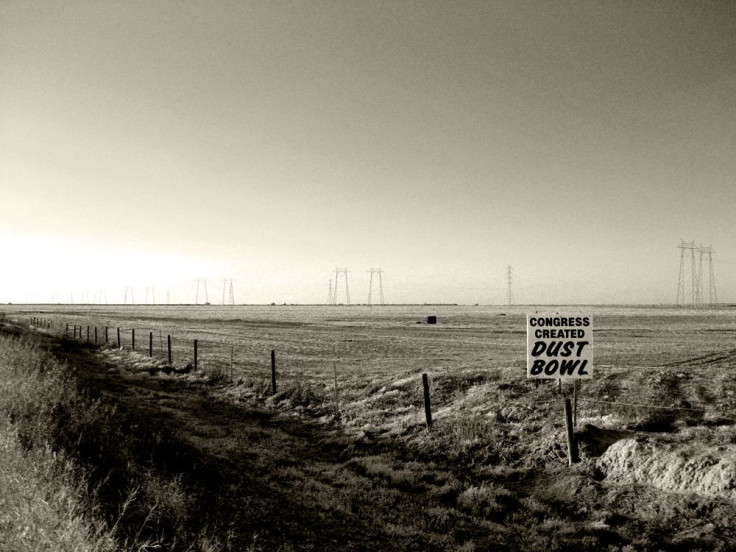Calif. Gov. Brown Signs Bill To Fight Water Crisis, Address Nitrate Contamination

A flurry of new laws from Sacramento may help Californians better distribute precious water among farmers and thirsty city dwellers, while also addressing environmental degradation and health risks from polluted water.
Gov. Jerry Brown, a democrat, on Tuesday signed more than a dozen bills intended to improve access to water for farmers and residents while alleviating concerns about polluted groundwater in local communities. The new laws consolidate water quality issues in the state under a single agency, the Water Resources Board, and provide funding for poorer localities to find clean sources of drinking water.
“California needs more high quality water, and recycling is key to getting there,” Brown told reporters while signing the bills.
Although past efforts to solve political stalemates over water distribution in the state have failed, the new laws met little opposition in Sacramento and throughout the state. “Water is a finite resource,” said Scott Shapiro, an attorney in the capital city representing public water agencies. “And it’s either in the wrong place or it’s in the wrong quality and existing regulations don’t allow us to use it in the right way—and each of these laws is an attempt to address some of those limitations.”
Among the most contentious issues in state water politics is the pollution of groundwater from agricultural chemicals, including nitrates used in fertilizer. Overpumping water groundwater, too, causes environmental damage affecting communities throughout the state.
Assemblyman Luis Alejo, a democrat involved in the legislative effort, said such pollution affects the agricultural communities he represents in Monterey County. One of the new laws would provide funding for poor communities in such areas. “There is a small community of less than 500 people where their entire water system was recently put under a court order that they can no longer drink it because of high levels of nitrates," Alejo told Reuters.
Exposure to nitrates in water has led to cases of “blue baby syndrome,” a condition in which infants experience a loss of oxygen in the blood, he said.
Suffering the effects of highly polluted water, an infant may develop a defective right ventricular outflow tract near the pulmonary valve that regulates blood flow to the lungs, meaning blood with less oxygen flowing into the lungs — giving the baby a characteristic bluish color.
Among other provisions, the new laws from Sacramento permit more landowners — not just farmers — to buy and sell water rights. The laws also promote the further grown of the water recycling industry, state senator Ben Heuso told Reuters. "We need to find ways to make water more available for those growers while also keeping water more affordable," Hueso said.
Hueso’s measure requires the new state water agency to devise ways to recycle wastewater into clean drinking water, a process meeting success in the San Fernando Valley and the Los Angeles metropolitan area.



























